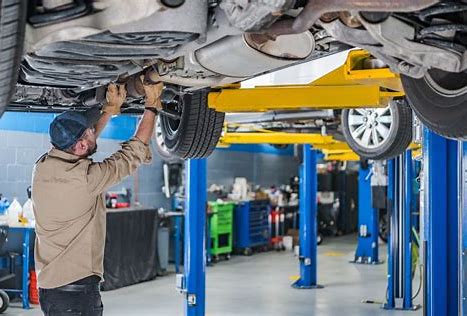
Maintaining your vehicle is crucial for its longevity, reliability, and safety. Here’s a comprehensive guide to automotive maintenance that will help keep your car in peak condition:
Regular Maintenance Schedule
Oil and Filter Changes: Regularly change your engine oil and oil filter according to the manufacturer’s recommendations. This prevents engine wear and maintains optimal performance.
Tire Care: Check tire pressure monthly and inflate to the recommended levels. Rotate tires every 5,000 to 7,000 miles to ensure even wear and extend tire life.
Brake Inspection: Inspect brake pads and rotors for wear and replace them as needed. Brake fluid should also be checked regularly and replaced according to the manufacturer’s guidelines.
Fluid Checks: Regularly check and top up fluids such as coolant, transmission fluid, brake fluid, and windshield washer fluid. Replace fluids at recommended intervals to prevent mechanical issues.
Battery Maintenance: Clean battery terminals and ensure a secure connection. Check battery health and replace it if it’s nearing the end of its lifespan.
Seasonal Maintenance
Winter Preparation: Ensure your vehicle is ready for winter by checking the heater, defroster, and tire tread depth. Consider switching to winter tires if you live in a snowy area.
Summer Readiness: Inspect air conditioning systems, coolant levels, and engine belts. Ensure your vehicle can handle hot weather conditions without overheating.
Preventative Checks
Inspect Belts and Hoses: Check belts and hoses for signs of wear, cracking, or leaks. Replace them as needed to prevent breakdowns.
Air Filter Replacement: Replace the engine air filter regularly to maintain fuel efficiency and engine performance.
Lights and Wipers: Ensure all exterior and interior lights are functioning properly. Replace windshield wipers if they streak or leave streaks.
DIY Maintenance Tips
Check Spark Plugs: Replace spark plugs according to the manufacturer’s recommendations for improved engine performance and fuel efficiency.
Inspect Suspension: Check shock absorbers, struts, and suspension components for wear and replace them if necessary to ensure a smooth ride and proper handling.
Professional Maintenance
Scheduled Inspections: Follow the manufacturer’s recommended service intervals for comprehensive inspections by a qualified mechanic. This ensures potential issues are identified early.
Diagnostic Scans: Periodically conduct diagnostic scans to check for error codes and potential problems in the engine, transmission, and other systems.
Importance of Maintenance
Regular maintenance not only enhances the performance and reliability of your vehicle but also contributes to safety and reduces the risk of unexpected breakdowns. It can also improve fuel efficiency and extend the lifespan of your car.
By following this guide to automotive maintenance and staying proactive with upkeep, you can enjoy a smooth and trouble-free driving experience while maximizing the value of your vehicle investment.